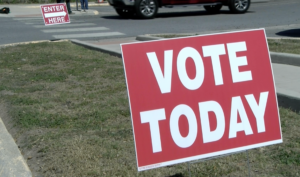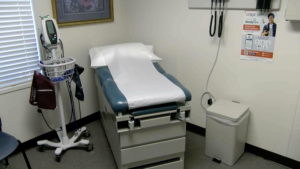BROWNSVILLE – April is Sexual Assault Awareness month, a time to highlight resources UTRGV offers to students on campus.
Cynthia Jones, director at the Office for Advocacy and Violence Prevention, said the center offers different resources despite recency.
“We can help people even if what they’ve experienced isn’t recent,” Jones said. “It is frequently the case that individuals experience trauma and then days, months, often years later, something will trigger a sound, a smell, or even seeing someone that you haven’t seen in a long time.”
For individuals who have experienced sexual assault, Jones said the OAVP office can refer students the safe H.A.V.E.N Forensic Exam Center Unit doctors’ hospital or Texas Forensic Nurse Examiners for an examination free of charge.
“It’s a service to document and record and collect evidence, either from a sexual assault or any kind of interpersonal violence and you don’t have to press charges to move forward I mean, you don’t have to it’s a collection of evidence,” Jones said.
Jones said the office helps students relocate to other universities and make schedule changes, so individuals do not have to be in proximity to the person who committed the abuse. Basic necessities and household items such as blankets, pillows, toothpaste and towels are provided.
According to Jones, 92% of women in college experience sexual assault by somebody that they know however, OAVP makes a report with minimal detail.
“Like the counseling center and the student house, we do report to the university, but we don’t report anyone’s name or any details of the situation,” Jones said. “We just report that we saw three people within the week who reported sexual assault.”
Of the 250 to 300 people who visit the OAVP office some experience a type of trauma, such as domestic abuse, sexual assault, dating violence, family violence, stalking and sexual harassment.
Jones explains the office helps with counseling; however, individuals have to make a report to the university police.
“We are not part of the university’s investigative process, we don’t investigate, so telling us that you experienced something isn’t reporting it to the university necessarily,” she said. “We can help you to report it if you want it investigated by campus police, by local law enforcement, or by the Title IX Office.”
Esmeralda Guerra, the UTRGV assistant chief of police, explained why it is important for the victim to come forward with their statement.
“We really need to encourage the person, the victim, it’s important for us to investigate, and we really need to speak to that person, so we can get the details, find out who was involved, [to] be able to move forward,” Guerra said. “One from stopping this individual, the perpetrator, from
happening again to anyone else and also providing assistance to the victim to provide the services that person needs.”
Laura Balboa, a UTRGV integrated health science junior, said blaming the individual who experienced sexual assault is seen as normal but by raising awareness we are starting the conversation.
“It’s quite normal to blame the victim. There’s not really a lot of information,” Balboa said. “It’s normally seen as hush hush due to the culture about keeping it to yourself due to the shamefulness but, by it [being Sexual Assault] Awareness month, I guess we’re changing that opinion.”
For more information, visit the Office for Advocacy and Violence Prevention website and contact the University Police Department.





